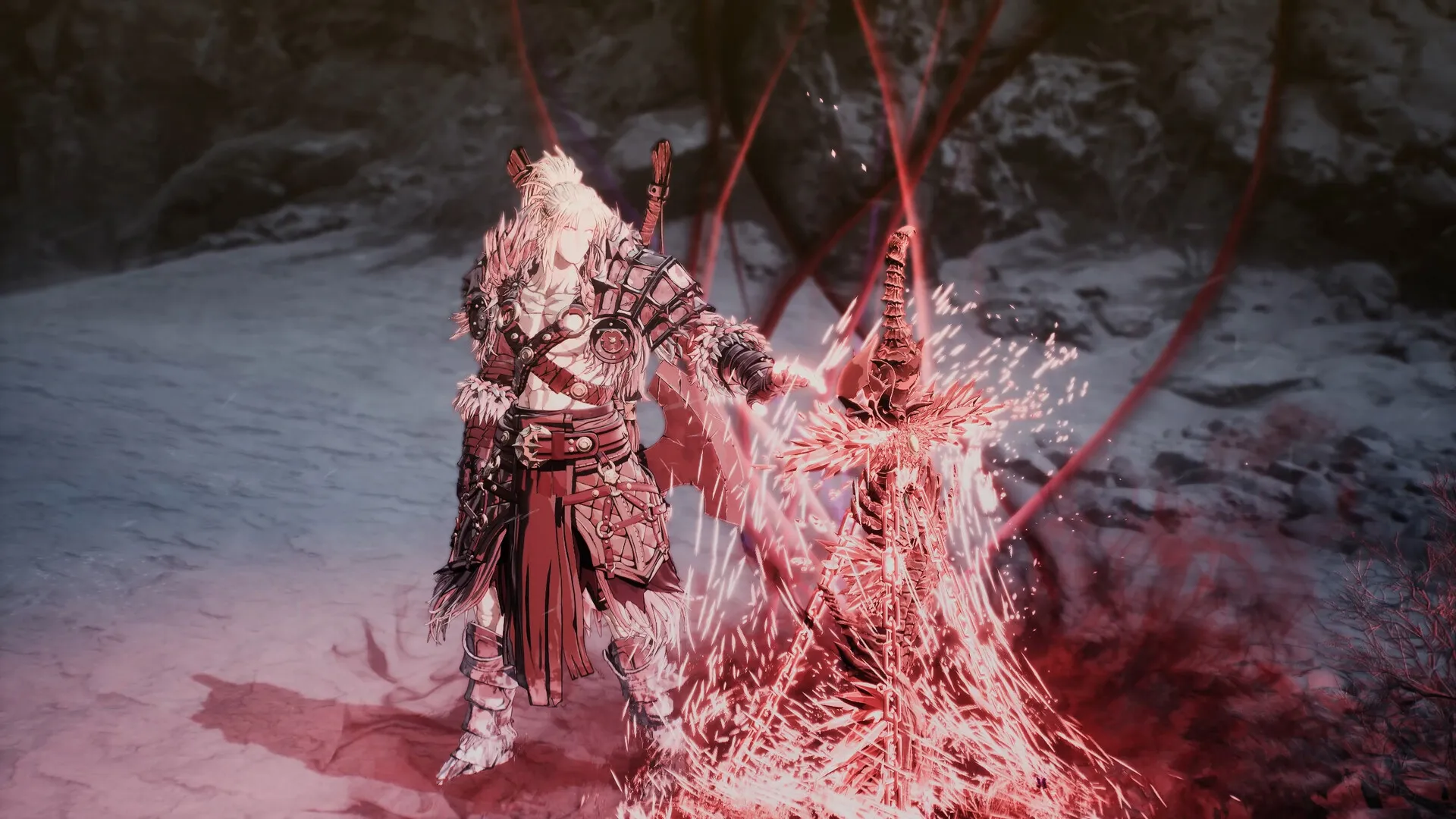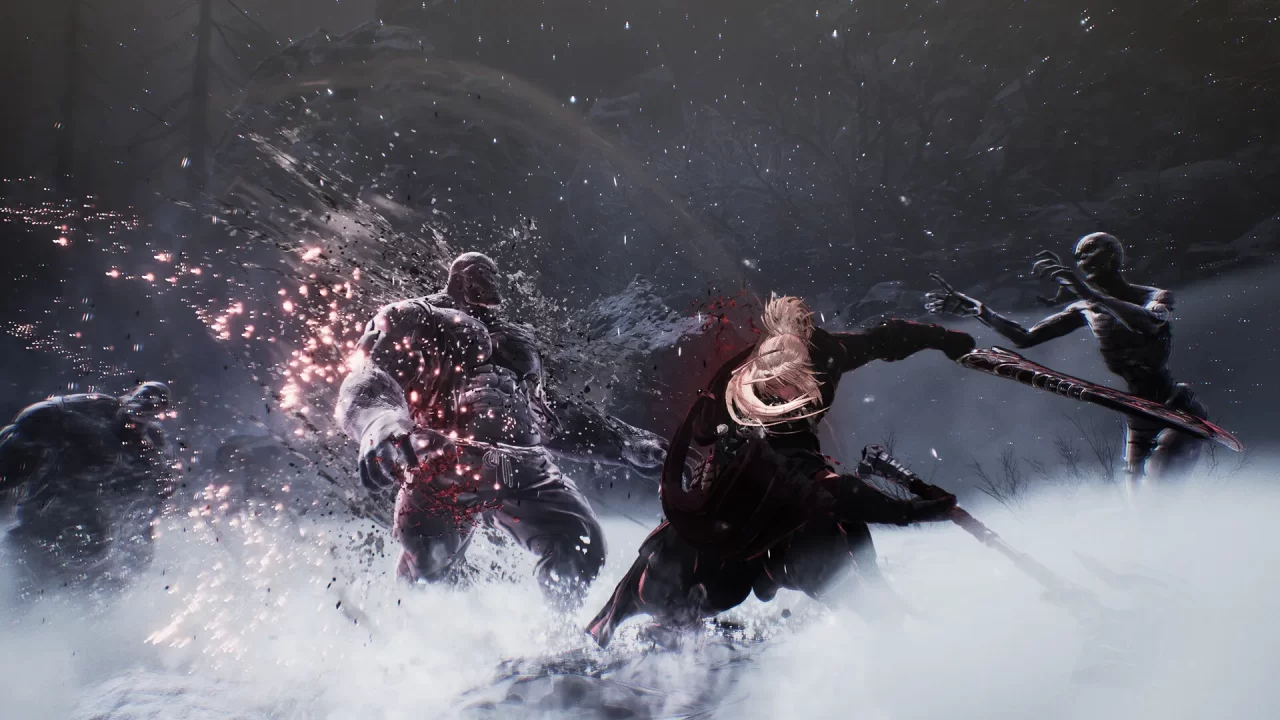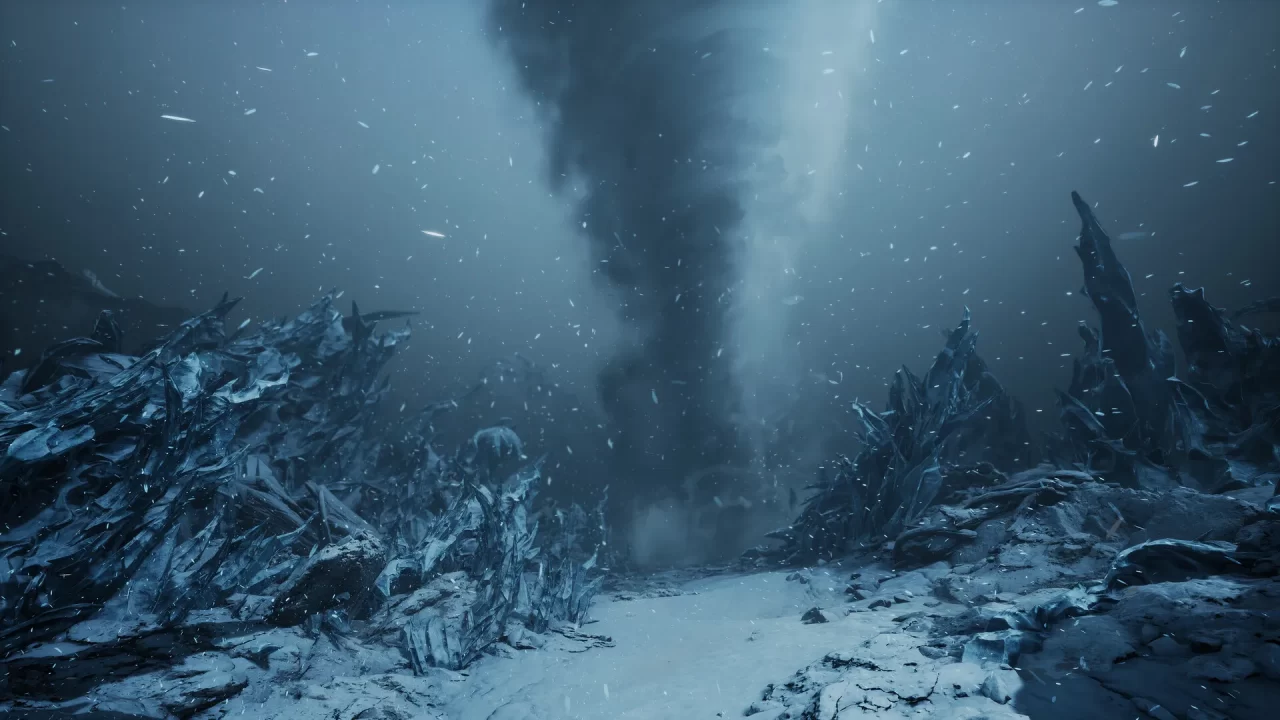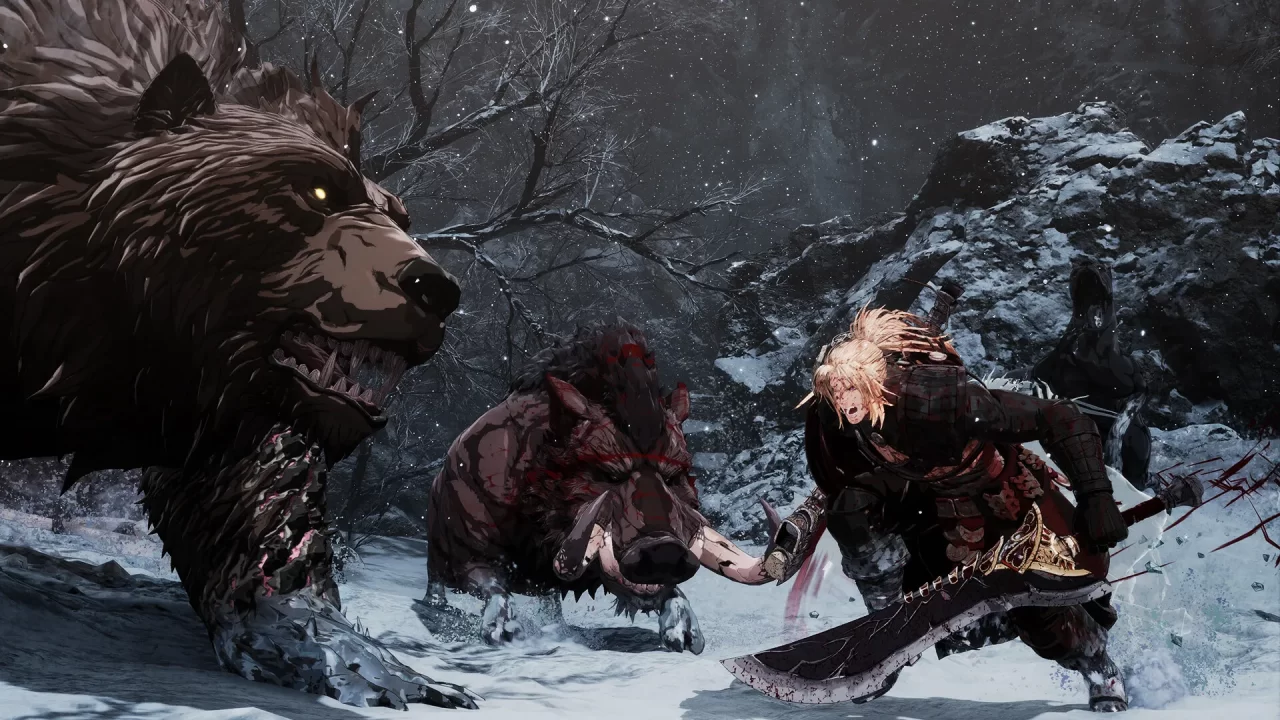There is a lot of excitement around The First Berserker: Khazan in the subset of gamers enjoying that most rarified of genres, the Soulslike: sharp-eyed heroes with better reflexes than a battle-hardened warrior, eager to get their hands on what could be their next brutally challenging experience.
Reader, I am not one of those elite few. In fact, the closest I came to those upper echelons was my few hours playing Bloodborne, which I enjoyed, despite quickly consigning it to the depths of the game pile in favour of more accessible fare. Such is the life of an RPG fan as I try to catch up with the Trails and Like A Dragon series. You know what it’s like.
Nevertheless, something drew me to Khazan, and heedless of my own personal safety, I jumped in. So, here is an overview of what you can expect from this title, especially for newcomers to this type of self-described “hardcore” game.
The First Berserker: Khazan is set in the universe of Dungeon Fighter Online, an astonishingly popular online fantasy game featuring hack-and-slash combat, which has purportedly (according to Wikipedia) raised at least $22bn in lifetime revenue. To my shame, I had never heard of it, so I went in doubly cold.
In The First Berserker, you play General Khazan of the Pell Los Empire, who is having a terrible day. Just like the A-Team, Khazan is framed for a crime he didn’t commit. His resulting punishment is having the tendons in his arms severed, as shown during the opening cutscene (no pun intended) in a suitably gory fashion. He is trundling along inside a wheeled cage when his caravan becomes stuck in an avalanche and his cage hurtles to its destruction. However, Khazan manages to survive with the aid of supernatural intervention. He strikes an uneasy bargain with a mysterious entity that imbues him with immense power, supplementing his already extensive combat skills.
Weapon in hand, it’s time to get into it. As expected, the combat system is not for the faint of heart or slack of finger. A strong or quick attack, a classic dodge, and a guard comprise your basic options. You have a stamina bar, and each input reduces it by differing amounts. If you manage to empty your stamina bar (which is not hard to do), you cannot take further action and leave yourself open to receive immense damage from your foes, so you need to watch that little gauge constantly. Lack of stamina is as much your implacable foe as anything else. There are ways around this; executing a perfect guard by hitting the button just before an attack reduces the amount of stamina used, and you can perform it even if there’s no more juice left in the tank.
In those first sections, as Khazan traipses through snowy mountains encountering his former captors, I often relied on holding down that guard button. As an absolute coward, this is a brilliant strategy until it isn’t. Unless you pull off a few perfect guards, you are going to fatigue too quickly. Effective guarding reduces the enemies’ stamina, and if you deplete it entirely, you can unleash merry hell upon your foes, ending in a “brutal attack” where Khazan lives up to his Berserker sobriquet. Stamina regenerates, leading to anxious confrontations as you try to beat opponents down to put them in a vulnerable state before they can recover. My neighbours could almost certainly hear my despairing wails as one fluffy button press ruined a tonne of good work.
As I discovered to my distress, relying on guard alone in no way promises a good time. Dodging is much harder to execute successfully, but results in much less stamina loss, with a perfect dodge awarding you increased moments of invulnerability. Dodging is your best plan when the other side throws mountains of fire or poisonous goop at you. It’s not something that came naturally to me. Cue multiple occasions of Khazan flailing headfirst into an attack, rather than smoothly rolling away from it.
Other typical Soulslike mechanics abound. For instance, killing enemies gifts you with Lacrima (cough, experience.) If you gain enough of this scarlet bounty, you can use it to level up and increase one of Khazan’s attributes. The game usefully illustrates the benefit of the potential level-up options, with the downside that I frequently agonised over where to place that precious plus mark. Truthfully, it’s skill that gets you through the toughest encounters, I realise as I cry onto my controller.
Like other Soulslikes, you lose all your stored experience if you fall between save points, although you can retrieve it if you make it back to the site of your demise. These save points, while not overly generous, are spaced evenly enough apart to avoid frustration while still being a source of relief whenever you spy one on the horizon. There is always one available immediately before a boss fight (thank you oh fickle gods of Souls), which makes everything feel much more player-friendly without sacrificing challenge.
Controversially (for some), The First Berserker: Khazan offers an Easy difficulty mode. Selecting this allows you to progress a touch more smoothly, but don’t be fooled. Even after picking this option, you’re not an unstoppable barbarian. You won’t suddenly think you’re playing Kingdom Hearts. Careless play is still off the table for those who want to progress, and the eternal cry of “git good” is still king.
I am conflicted about this; on the one hand, those tempted to play on Easy look for a more forgiving time, perhaps hoping to see content that might otherwise be locked behind too high a skill barrier. Not only that, but time is a precious commodity for gamers (particularly for RPG aficionados,) and there is no way of assessing how much of it you might sink into a game where success is never assured. On the other hand, Khazan taught me the joy of conquering a troubling situation after you’ve invested mountains of time into it, and it’s difficult to argue this isn’t central to the experience. Overall, I think the developers made the right call, although perhaps adding a third difficulty mode would be a better choice.
The First Berserker: Khazan offers a performance and a quality mode. Now is the time for me to admit that I prefer quality modes in most games. As a child of the eighties, 30fps is fine for me. I happily flipped to quality mode during my first twenty minutes with Khazan, and then just as quickly switched back. The juddery mess that greeted me was more horrifying than any of the multilimbed monstrosities Khazan confronted in my time with the game. Perhaps the PS5 Pro offers better optimisation, but base PS5 users beware.
The world of Khazan is depicted with striking cel-shaded graphics. It is a change of pace to have a true Soulslike game with an anime aesthetic. I can’t remember many outside of Code Vein. Despite this, Khazan brings horror to the fore, sacrificing no intensity just because it doesn’t have the “realistic” style of something like Elden Ring. The creatures you battle include rabid-looking bears, trolls and ogres, and a crypt’s-worth of undead, all of which have suitably grim demeanours.
The gameplay is as responsive as you would hope, which is the key draw here. Once you are in the flow, working your way through minor antagonists becomes swift and satisfying. You gain skill points through mastery of your weapons, and this opens up new abilities that increase your combat repertoire. At this point, you start stringing together quick and strong attacks for differing effects. You choose between spear, great sword, and dual blades, but I spent most of my time with the spear. I repeatedly used a couple of move sets, but Khazan encourages you to shake things up through its varying enemy patterns. On the downside, there are occasions when foes back you into a corner and no amount of attacking or dodging allows you to escape, which is frustrating and something that I would like to see addressed.
Regarding the story, well…thank goodness for the gameplay. Khazan and the other characters he meets are not compelling. Khazan is a man of few words at the best of times, resulting in wasted use of Ben Starr’s wonderful vocal talent. The environmental worldbuilding, conducted through letters and notes scattered around, is basic and inconsequential.
You won’t play Khazan for this though. The epic boss battles truly deliver, with each offering a unique design and moveset. They utilise different abilities to mix things up and multiple phases enhance the feel of these pivotal moments. This is a good thing because some of these encounters take a large amount of time, especially when you get hit with a status effect that drains your health as you frantically try to survive.
From all I’ve seen so far, I recommend Khazan to anyone who is willing to put in the effort to conquer its high entry barrier. If you think this might be a Soulslike for beginners, though, you are sadly mistaken, and I would advise you to start elsewhere.







Leave a Reply
You must be logged in to post a comment.